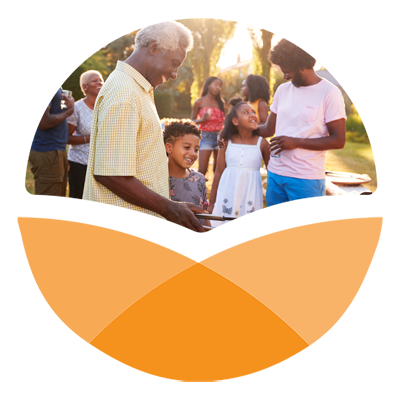
Individualized training and technical assistance
Implement the HOPE framework on a specific area
The HOPE National Resource Center provides individualized training and technical assistance around the implementation of the HOPE framework on a specific, deeper-level topic. We currently offer training and technical assistance on:
- Creating an internal culture of HOPE
- HOPEful intakes
- HOPEful screenings and assessments
- HOPEful policies
- Using HOPE for equity advancement
- HOPEful referrals
Both your staff and leadership can engage in training workshops on a topic(s). Workshops are typically 90-120 minutes in length. The cost of each training workshop is $3,500. In addition to completing the training workshops, you have the opportunity to work directly with the HOPE National Resource Center to implement HOPE in the topic(s) covered in your training. Your team might receive a training on “Creating an internal culture of HOPE” and then decide to work with the HOPE National Resource Center to change policies, practices, and procedures to cultivate a HOPEful internal workplace.
Individualized training and technical assistance offerings
Creating an internal culture of HOPE
HOPE implementation goes beyond staff training on the HOPE framework. Time and time again, we heard from trained staff, especially those who interact with children and families, that leadership change is important for sustaining HOPE.
In HOPEful organizations, staff understand how to implement HOPE and see their leadership reflect those values back to them. Without this alignment, organizations may return to business as usual without truly incorporating the HOPE concepts into their work. That is why building an internal culture of HOPE as a support system for staff is crucial.
HOPEful intake forms
Forms used by organizations absolutely set their tone and define their priorities. As families fill out intake forms, they begin to understand what is important to the organization. This is often the families’ first connection to the agency.
Over time, intake forms tend to get longer as partners, like funders and parent organizations, request more or different information to be collected. We recognize that not all changes can be made to intake forms.
Using the HOPE framework, we will review both ways to create HOPEful intakes: opportunities where you can change the forms and ways to deliver unchanged intakes using a strengths-based, HOPEful lens to promote resilience.
HOPEful screenings and assessments forms
We recognize that screening and assessment forms are important in serving children and families. These forms help providers learn what is not going well with their clients so that they can best understand how to focus their time and commitment.
Collecting this information can often be stressful for both the families and providers during the screening process. Whether you are screening for food and housing insecurity, violence in the home, adverse childhood experiences (ACEs), or developmental milestones, there are ways that you as a HOPE-Informed provider can conduct these assessments in a strengths-based way that results in families feeling more connected to the protective factors and positive childhood experiences (PCEs) after the screening.
HOPEful policies
Policies guide the day-to-day practices in organizations. They even have the potential to promote the Four Building Blocks of HOPE, key types of positive childhood experiences (PCEs).
Policies are often created when practices are not going well. They can be influenced by a client late for their visit impacting the provider’s schedule, a child having behavioral challenges in a classroom, or a family with financial hardship unable to pay for the provided service.
Policies developed in reaction to a problem may inadvertently block access to one or more of the Four Building Blocks. Together, we will assess your existing policies to make sure they are HOPE-Informed.
Using HOPE for equity advancement
One of the guiding principles at the HOPE National Resource Center is creating equitable access to positive childhood experiences (PCEs) for all children and families. We deeply believe that the HOPE framework can be used to advance health equity. In this training, we will review how to use HOPE for equity advancement through case study discussions and apply this thinking to our community with activities.
HOPEful referrals
Referrals to other services and supports happen regularly. With intention, they can be powerful moments of HOPE. It can also be moments of connection between providers and families that can lead to families feeling satisfied with the service and increase the likelihood that they will pursue the referrals. We will review what makes referrals HOPE-Informed that connect both family goals and the Four Building Blocks of HOPE.
